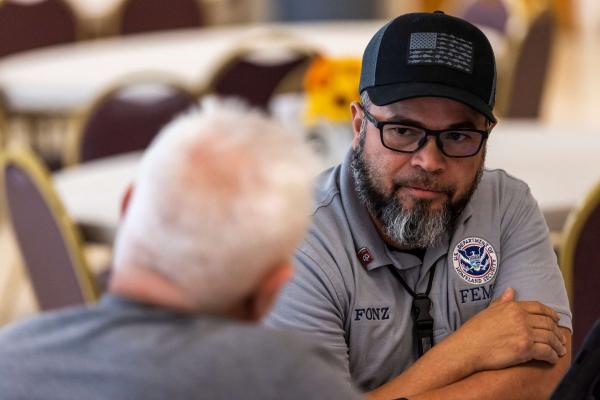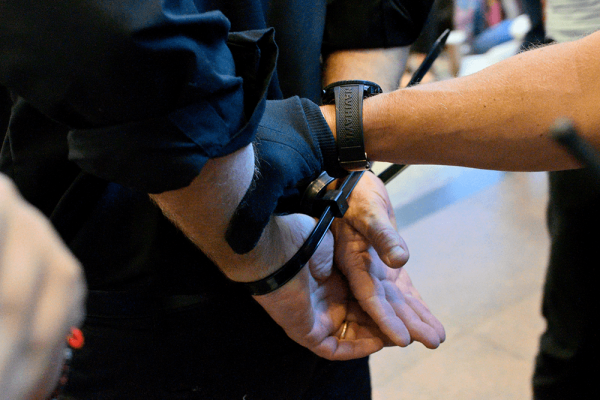Over the course of the HBO series The Penguin, Sofia Gigante transforms from abused daughter of Gotham City mobster Carmine Falcone to a proper supervillain, the head of her own crime family. Sofia has chosen a new surname for herself. By going from Falcone to Gigante, she signals that she’s different from her father. Sure, Sofia’s still committing crimes (like he did) and killing people (like he did), but she's convinced there’s something righteous in her ascension: Her rise to power represents a rejection of the misogyny that’s always plagued her.
What I’ve most appreciated about Downen is that investment in community. To report on abuse in the SBC, Downen had to earn the trust of everyone from powerful, complementarian pastors to radical, queer exvangelicals. His reporting, as we discussed below, is focused on impacts of power and policy instead of being driven by personalities.
In our interview, we discussed how anti-democracy organizing and Christian sex abuse overlap, what reporters need from their communities, and why he treats religious organizations as institutions with power.
On Nov. 19, Federal Emergency Management Agency Administrator Deanne Criswell sat before legislators on Capitol Hill and defended the agency from accusations that it responded slowly to hurricanes in the southeastern United States and skipped homes with President-elect Donald Trump signs on their property.
Earlier in November, Criswell said in a statement that a FEMA employee who had told relief workers in Florida to skip houses with signs supporting Trump had been fired. (Other employees later returned to those homes to offer the opportunity to apply for aid, Criswell testified.) This revelation came at a time when conspiracy theories about hurricanes were rampant.
Perhaps more than any other medium, books can simultaneously sharpen our suspicion and enlarge our imaginations. Sojourners’ best books of 2024 do both with style.
After news broke Wednesday that President-elect Donald Trump planned to nix a policy discouraging immigration arrests in places like churches and schools, Indiana pastor Zach Szmara fielded questions from churches across the country about how to prepare.
“What happens when strangers meet?” is the driving question of the Silkroad Ensemble, an instrumental group conceived in 1998 by cellist Yo-Yo Ma. Musicians from around the world connect and communicate through music in response to this question. Lines between East and West, classical and folk blur as musicians work together to give old sounds new life. When musician and historian Rhiannon Giddens became artistic director of Silkroad in 2020, she focused the musical conversation on railroads. What emerged, and is still emerging, is American Railroad: A Musical Journey of Reclamation — a multiyear collaborative project including performances, residencies, an album, and a podcast exploring the untold stories of the people who helped lay the tracks connecting the United States.
For a long time, I’ve wondered how, on a practical level, something like mass deportations would work. Specifically, I’ve wondered how churches providing shelter to immigrants will respond if and when Immigration and Customs Enforcement agents show up to deport people seeking refuge. What can faith communities, activists, and people of conscience do to tangibly help immigrants right now?
Last year, Sammi Mrowka, a graduate student at San Diego State University who is nonbinary and transgender, completed the legal process for changing their name and gender marker on IDs. Mrowka, who uses “he” and “they” pronouns, participated in a name and gender marker change clinic run by law students at the University of San Diego, who helped him fill out the paperwork.
The films below feature characters — real and fictional — who doubt, who sin, who ask for forgiveness, and who try to carry on and seek justice in a universe full of violence, corruption, and sickness, but also humor, love, and reconciliation.
Megan Boyd wasn’t surprised when she first heard her child Daisy describe the phrase “your body, my choice” being used at school. Saddened, yes. Disappointed, absolutely. But for Boyd, the surge in misogynistic rhetoric following the election was just another sign of a growing boldness she’d seen in her New Hampshire town.









